European Platform for Digital Humanism
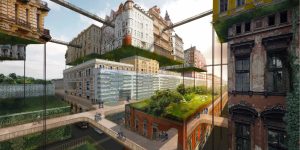
Art Thinking Forum: Humanizing Technology
Mara Balestrini (IT), Olga Kisseleva (RU), Alexander Mankowsky (DE), Hideaki Ogawa (JP/AT)
Art Thinking is a platform for discussing the role of art in the future, in the context of industry, society, and ecology. The forum is supported by the innovative communication design company Hakuhodo. In tandem with Ars Electronica's interest in emerging technologies and their effect on society, their forward-thinking creative approach strongly complements the topic of the panel: future arts, and how cutting-edge and creative artistic examples can be used to humanize technology and improve society.
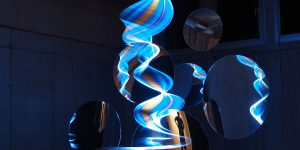
Art Thinking as Catalyst
Jurij Krpan (SI), Alejandro Martín (ES), Camille Baker (UK), Veronika Liebl (AT)
The Science+Technology+Arts = STARTS Initiative is a program of the European Commission to encourage synergies between the arts and technology that support the innovation industry and society. STARTS promotes the inclusion of artists in research and innovation activities thoughout Europe.
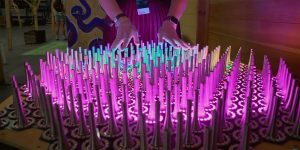
This is Sónar+D
Sónar+D – Sónar Festival's creative technologies conference – is an international congress exploring how creative minds are changing our present and imagining new futures, in collaboration with researchers, innovators and business leaders from all sectors and industries.
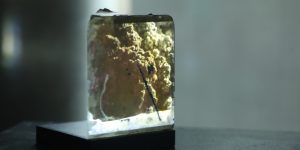
Creative Question Challenge: Can unheard signals inspire change?
Siobhán McDonald (IE), Chris Bean (IE), Adriaan Eeckels (BE)
'Let us finish what we started'. This is how the UN introduces its first Sustainable Development Goal - to end poverty in all forms and dimensions by 2030. The 17 Sustainable Development Goals and their 169 targets have been described as a sprawling, misconceived mess of grandiose intentions. The title of the development agenda itself - 'Transforming our World' - oozes utopian ambition. It was adopted by 193 nations in 2015. Five years later and with ten years left, how do you think our world will transform?
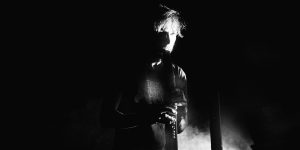
AI x Music Festival: Bot Bop Musical creation and innovation with AI
Andrew Claes (BE) and Dago Sondervan (NL)
Musical phrases are fed in real-time to a live coded machine learning model. The emerging virtual agent reacts and is again reacted to, creating an organic feedback loop. Utilising improvisational, instant composing and algorithmic musical techniques, listen to the duo becoming a trio during the course of this performance.
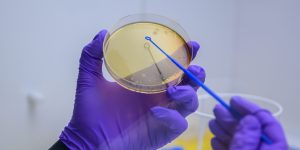
Genetic Biotech through the Eyes of Artists
BOZAR presents a talk on genetic modification, featuring Sandra Lorenzi (FR), Kuang-Yi Ku (TW), Christophe De Jaeger (BE), and 2 scientists from the Vlaams Instituut voor Biotechnologie – VIB. The talk will be preceded by a video streaming of a guided tour in the VIB facilities in Gent (BE), with Sandra Lorenzi (FR – artist of the Studiotopia programme), Kuang-Yi Ku (TW – artist of the Studiotopia programme), Sofie Bekaert (BE – VIB) and VIB scientists Roosmarijn Vandenbroucke and Sofie Goormachtig, presenting their current research.
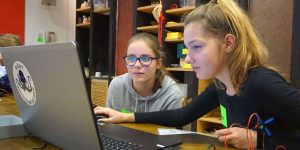
Scratch-Introduction: Rocket launch!
You can`t get to space without the help of computers – so here’s an introduction for children (10-14 years) who want to learn programming. Via the free online platform Scratch we will animate an interactive rocket launch.
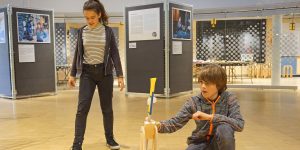
A sketchnote-workshop online - our experience
Participatory workshops with students offer exciting new perspectives for scientific communication, but what happens when they have to be done remotely? In this online seminar we will explore the challenges and opportunities provided by shifting a Sketchnote workshop with students to an online format.
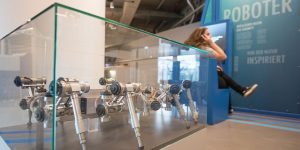
Space in the classroom? - It's not rocket science!
Everybody loves space, but how can teachers include space topics in class? This online seminar offers simple experiments as supplements to “normal” STEM-lessons and introduces extracurricular learning centers that offer deeper dives.
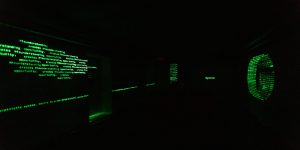
Art and Nanotechnology by Marcel Weber
gnration (PT) and INL – International Iberian Nanotechnology Institute (PT / EU)
For its Ars Electronica Garden, gnration will present a virtual tour of The Invention of Sense, by German artist Marcel Weber.
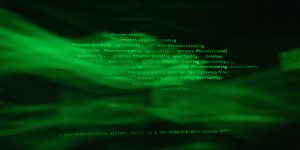
Art and Nanotechnology - Marcel Weber
gnration (PT) and INL – International Iberian Nanotechnology Institute (PT / EU)
For its Ars Electronica Garden, gnration will present a virtual tour of The Invention of Sense, by German artist Marcel Weber.
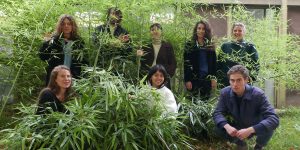
Drums Radio – 2 hours live radio session per day
Aurore Balsa (FR), Delphine Dora (FR), Ambre Dourneau (FR), Romain Gaudillière (FR), Céline Jiang (FR/CN), Pauline Mikô (BE), Nina Queissner (DE), Natalia Rivera Riffo (CL), Victor Villafagne (FR)
The DDD is a conceptual analytical system where the association of three words in D creates a tridimensional investigation space. As sound matter is a mechanic wave working in three dimensions, we assign it to a tridimensional physical space. Thereby, we want to construct a autonomous reflective space where sound projects itself.
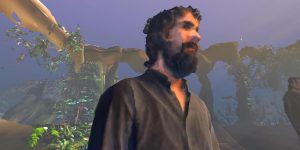
Acte de Fe
Marc Vilajuana, Adrià Grandia, Carlos Martorell
Act of faith (Acte de Fe) is an exploration of our relationship with technology, its similarities with the one we have with religion, the tools involved in both processes, and its impact on us and in our sacred/private space. Mise-en-scène will consist in a liturgy performed by Marc Vilajuana (voice, effects, hand drum), Adrià Grandia (acoustic and MIDI hurdy-gurdy, modular synth, laptop, aerophones), Carlos Martorell (coding, synths, motion sensors, artiphon) and a real-time reactive AI trained with religious scores.
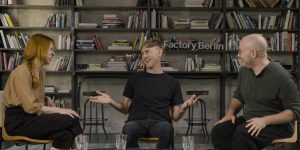
Interdependence with Richie Hawtin: AI for humans
Holly Herndon, Matt Dryhust
In this discussion we explode the false binary of humans and machines in the music making process, explore ways that AI systems could actually help get more humans paid rather than displace them, and discuss the necessity of artists having a seat at the table in the process of AI tool development.
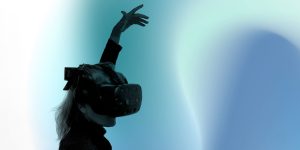
Dance the distance
Ariella Vidach (IT), Claudio Prati (CH), Paolo Solcia (CH), Riccardo Santalucia (IT), Sebastiano Barbieri (IT), Francesco Luzzana (IT), Giovanni Landi (IT)
Live Guided Tour in a Dance Virtual Studio. MEET’s second project Dance the distance is a live guided tour through a virtual dance studio. Participants as avatars will be able to meet the virtual dancers and join an open rehearsal for a VR dance performance in progress.
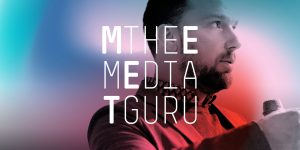
Meet the Media Guru
William Myers (US/NL)
Within its Meet the Media Guru format, MEET presents a talk by William Myers about the emerging practice of integrating biological processes into art and digital creativity. An exhibition curator and lecturer based in Amsterdam (NL), Myers is the author of two widely acclaimed books about the intersections of design, art, and science: Biodesign and BioArt.
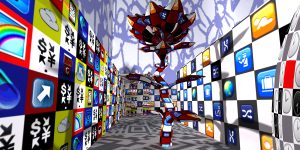
CNMAT ODOT
John MacCallum(USA), Jeff Lubow (USA)
In this workshop, we will provide a brief, practical introduction to odot, a dynamic, multi-paradigm programming environment that operates on Open Sound Control. Developed at CNMAT beginning in 2007, odot has evolved into a powerful and robust suite of tools useful in a variety of contexts, from gesture signal processing to computer-aided composition. During this workshop, we will discuss the current state of the package and the future of the project.
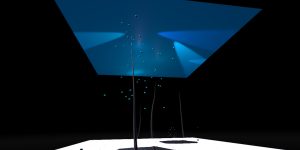
The QuBits VR Space
Jon Kulpa
Jon Kulpa is available to host a live online demonstration/performance of QuBits VR. The QuBits project is a virtual reality (VR) environment built by the composer that offers an expanded medium for musical experience with integrated space and visuals. The environment was designed to explore a musical aesthetic valuing sound mass, spatial sound, evolving sound, and algorithmically generated sonic structures. The user of the VR system plays a key role in shaping these musical elements. The user first discovers what behaviors are possible through exploration and chance encounters. They can then shape each discovered behavior with nuance if they choose. The system provides a unique experience each time it is run. The sounds are a mix of real world sampled sound, granular synthesis, and real-time generated synthetic sound.
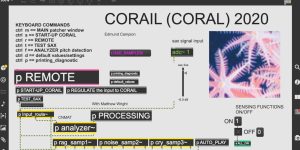
Performance of CORAIL
Edmund Campion
There is no pre-defined score for CORAIL (CORAL). CORAIL is a software environment that performs audio analysis of an incoming live signal that generates and organizes sound through the computer and the CORAIL algorithms. Persistence inside any one environment causes the program to move toward greater sound generation and machine autonomy.
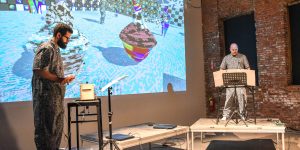
ORCHIDEA with Composer and Lead Researcher at CNMAT
Carmine Cella
Carmine Cella is available to host a live online demonstration/workshop for ORCHIDEA, a framework for static and dynamic computer-assisted music orchestration. Orchestration consists largely of choosing combinations of sounds, instruments, and timbres that support the narrative of a piece of music. The ORCHIDEA project assists composers during the orchestration process by automatically searching for the best combinations of orchestral sounds to match a target sound, after embedding it in a high-dimensional feature space.


